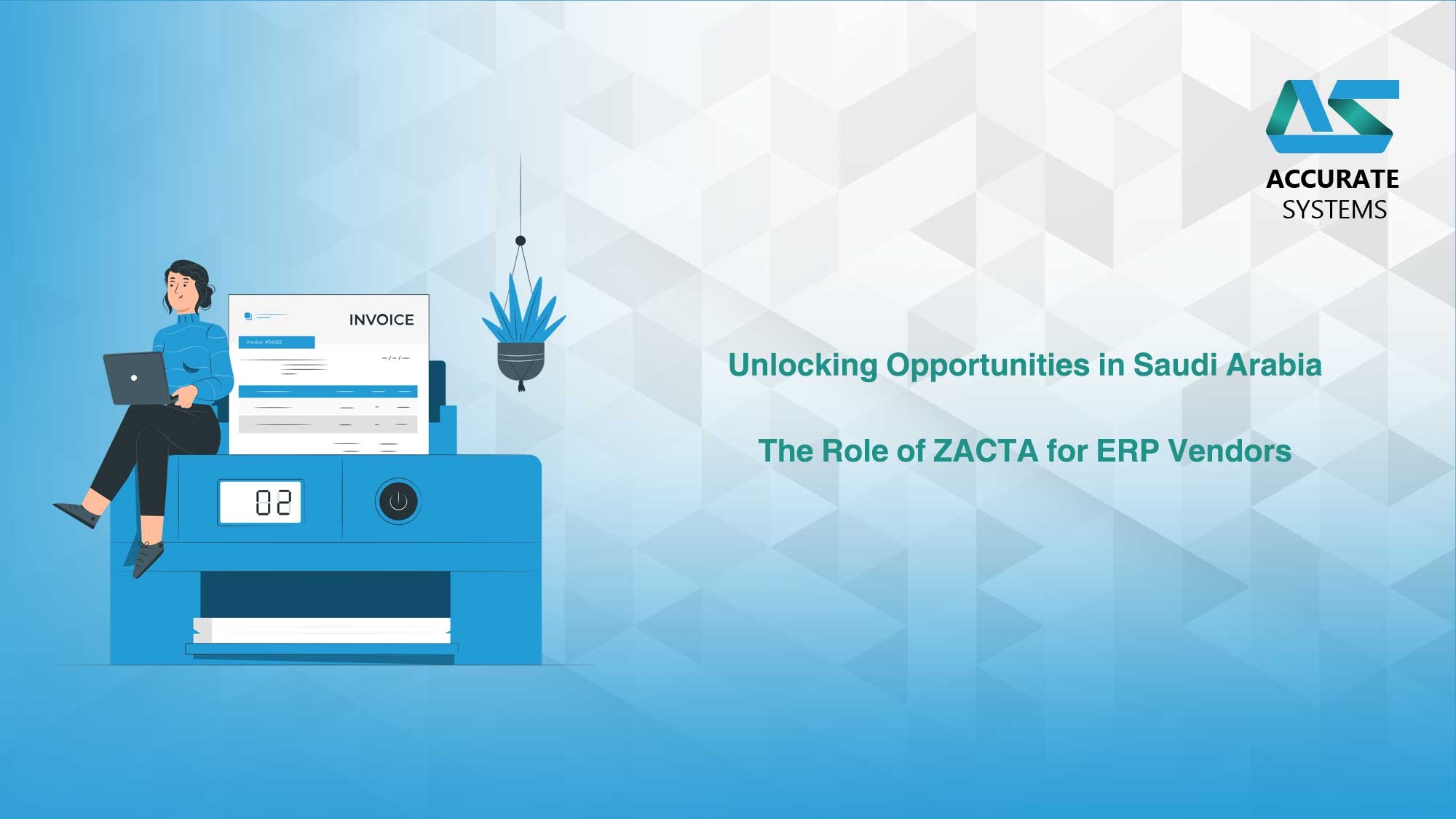The Saudi Arabian market presents unique challenges and opportunities for Enterprise Resource Planning (ERP) vendors. To succeed in this dynamic environment, ERP vendors must tailor their solutions to meet the specific cultural and regulatory requirements of the country. The General Authority of Zakat, Tax, and Customs (ZACTA) plays a pivotal role in shaping this regulatory landscape. Vendors must ensure seamless integration with ZACTA’s systems to remain compliant and competitive.
Understanding ZACTA
ZACTA is the government body responsible for managing zakat, tax, and customs matters in Saudi Arabia. It is crucial for ERP vendors to adapt their systems to comply with ZACTA’s regulations and ensure smooth integration.
Key Responsibilities of ZACTA:
- Tax Administration: ZACTA oversees the assessment, collection, and enforcement of taxes like income tax, value-added tax (VAT), and zakat.
- Customs Regulation: ZACTA manages import/export procedures, tariff classification, and customs valuations.
- Zakat Collection: The agency is responsible for the collection of zakat, an Islamic tax on Muslims.
- Economic Development: ZACTA promotes investment and trade policies to drive economic growth in Saudi Arabia.
Cultural Considerations for ERP Vendors in Saudi Arabia
Saudi culture, deeply rooted in Islamic traditions, significantly influences business practices. ERP vendors must consider these cultural elements when developing or localizing their solutions for the Saudi market.
Key Cultural Factors to Address:
- Modesty: ERP systems should respect cultural norms, such as gender segregation. Avoid displaying inappropriate images, especially of women, in public modules.
- Religious Practices: Accommodating Islamic holidays like Ramadan in scheduling and planning features is vital. ERP systems should allow for flexible work hours and religious time-off requests.
- Hierarchy: The hierarchical nature of Saudi society must be reflected in ERP systems through access controls and reporting mechanisms.
- Relationships (Wasta): Networking and building relationships are essential in Saudi business culture. ERP solutions can support this by providing tools for communication, contact management, and collaboration.
Regulatory Requirements for ERP Vendors
ERP vendors must ensure their solutions comply with Saudi Arabia’s regulatory framework. Failing to do so can result in compliance issues or penalties. Key regulatory areas include:
- Tax Compliance: ERP systems must accurately calculate and report taxes, including VAT, zakat, and corporate income tax. This requires seamless integration with ZACTA’s tax systems.
- Data Privacy Laws: ERP solutions must adhere to local privacy regulations, such as the Saudi Data Protection Law. This includes protecting sensitive data and implementing data breach protocols.
- Labor Regulations: ERP systems must manage payroll, employee records, and benefits in line with Saudi labor laws. This ensures compliance with salary calculations, working hours, and leave entitlements.
- Customs Regulations: For businesses engaged in international trade, ERP systems must manage import/export processes efficiently by integrating with Saudi customs systems.
Integration with ZACTA Systems
Seamless integration with ZACTA is a critical requirement for ERP vendors in Saudi Arabia. By connecting their systems to ZACTA’s platforms, vendors can automate tax reporting, customs declarations, and compliance tasks.
Integration Methods:
- API Integration: Vendors can use APIs to submit tax returns, receive tax assessments, and access tax information.
- Standard Data Formats: Standardized formats like XML or JSON facilitate smooth data exchanges between ERP systems and ZACTA.
- Direct Integration: In some cases, ERP vendors may directly integrate with ZACTA systems through proprietary interfaces, allowing for real-time data exchange and enhanced operational efficiency.
ERP Vendors Adapting to the Saudi Market
Several ERP vendors are making significant strides in adapting their solutions for the Saudi market. ERPNext, for instance, offers a highly customizable platform tailored to meet Saudi businesses’ needs. This includes integration with ZACTA’s systems, Arabic language support, and Islamic calendar integration.
Key Features of ERPNext:
- Localization: Support for Arabic language and cultural-specific workflows.
- Compliance: Seamless integration with Saudi tax and customs systems, ensuring full compliance with local regulations.
- Customization: Flexible features that cater to different industries, ensuring ERPNext can be adapted to meet specific business requirements in Saudi Arabia.
Conclusion
The Saudi Arabian market presents both opportunities and challenges for ERP vendors. To thrive, vendors must adapt their solutions to meet the country’s cultural nuances and regulatory requirements. Integration with ZACTA is essential for compliance, especially in areas like tax reporting and customs management. Companies like ERPNext showcase how ERP vendors can successfully localize their platforms to cater to the specific needs of Saudi businesses.
By understanding and addressing these unique requirements, ERP vendors can unlock new growth opportunities and build long-term success in Saudi Arabia.


